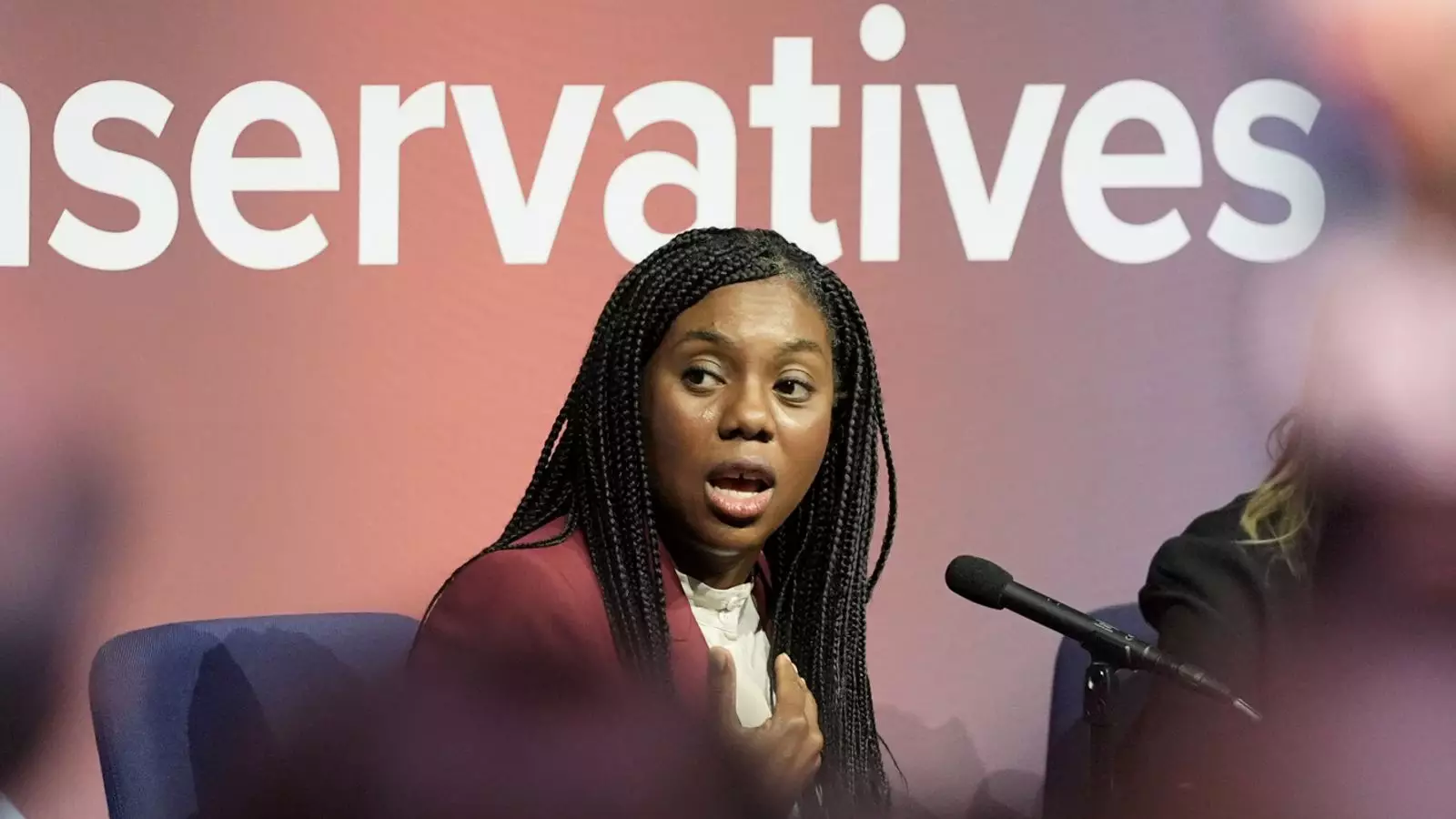In the intricate web of British politics, few figures have managed to ignite discussion quite like Kemi Badenoch. Recently, her remarks regarding civil servants have stirred conversations about accountability, loyalty, and the increasing polarization within the political landscape. When she labeled 5-10% of civil servants as “very bad” and suggested they “should be in prison,” Badenoch’s assertions sparked immediate pushback from various quarters, raising questions about the governing ethos and the responsibility of public officials.
Badenoch made these incendiary comments during a fringe event at a Conservative Party conference, where she was discussing the potential to limit the size of the civil service. Her intention was to address perceived inefficiencies within the ranks of civil servants, arguing that a small faction is leaking official secrets and undermining governmental authority. While she acknowledged that many civil servants perform commendably, her focus on the alleged 10% deviants painted a stark, almost conspiratorial picture.
Notably, Badenoch’s rhetoric can be understood within the broader context of a political climate that is increasingly characterized by divisiveness and the use of ‘culture war’ language. By framing civil servants in such stark terms, she risks marginalizing an entire profession that is essential for the functioning of government, as well as alienating those within her own party who value public service and its integrity.
The backlash against Badenoch’s statements was swift and pointed. Figures such as Dave Penman, the general secretary of the FDA union, strongly criticized her for making “serious accusations” without providing substantial evidence. He framed her comments as irresponsible, stating that if she had credible information, appropriate action would have followed. This highlights a crucial aspect of political discourse: claims made by individuals in positions of power must be grounded in evidence. Failure to provide such evidence not only undermines the speaker’s credibility but also erodes public trust in political institutions.
Moreover, Badenoch’s controversy isn’t an isolated incident. The public’s fatigue with unfounded allegations has grown as the political landscape has become cluttered with hyperbolic claims and scapegoating tactics. The phenomenon of pointing fingers at the “other” faction—be it civil servants or other political opponents—underscores a retreat from substantive policy dialogue towards a more sensational approach that often bears repercussions for public trust and government efficacy.
Badenoch’s remarks reflect an ongoing trend in politics where officials feel empowered to critique the very systems they inhabit. By labeling a segment of civil servants as detrimental, the implication is that trust is eroding not just among the public but within the mechanisms of government itself. This sense of internal distrust could provide fertile ground for further ideological battles, propelling a rift between ministers and the civil service to unprecedented levels.
Such dynamics might have profound implications for governance. If civil servants begin to feel under siege, apprehensive about their roles and responsibilities, it could impair their performance and willingness to contribute candidly to policy-making discussions. Furthermore, the specter of accusations about loyalty can dissuade capable individuals from public service positions altogether, ultimately harming the administrative functions of the government.
As she vies for the leadership of the Conservative Party, Kemi Badenoch capitalizes on her reputation as a direct and unfiltered communicator. However, the backlash from her recent comments may have unintended consequences for her campaign. While she may enjoy support within certain factions of the party, nurture a strong base among active members, and have a vision for policy reform, the polarizing nature of her rhetoric threatens to alienate broader segments of the electorate.
Polling data shows that while she currently leads in some respects, there remains significant uncertainty about her ability to unify party members and address pressing issues coherently. Her comments about civil servants could just be another note in a symphony of blunders that jeopardize her prospects among undecided voters within and beyond party lines.
In this charged political landscape, the importance of fostering a collaborative environment among civil servants cannot be overstated. Rather than jeering at alleged incompetencies, the focus should shift towards establishing systems that facilitate accountability and transparency. The political discourse must rise above sensationalism to confront core issues with nuance, fostering a culture of mutual respect rather than discord.


Leave a Reply